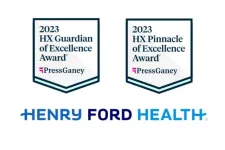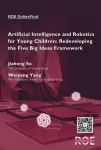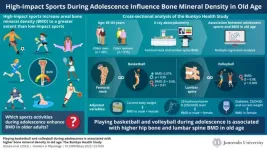(Press-News.org) After stem cell transplantation, the donated immune cells sometimes attack the patients' bodies. This is known as graft versus host disease or GvHD. Researchers at the Technical University of Munich (TUM) and the Universitätsklinikum Regensburg (UKR) have shown that GvHD is much less common when certain microbes are present in the gut. In the future, it may be possible to deliberately bring about this protective composition of the microbiome.
Stem cell transplantation can save the lives of patients suffering from cancers such as leukemia. However, graft versus host reactions occur following around half of these procedures. In a sense, they are the reverse of the rejection response seen after organ donations, in which the body attacks the donated organ. Here, the donated cells attack the patient’s body, for instance, in the digestive tract.
It has been known for some time that microbes in the gut play a role in determining whether GvHD occurs. A team working with Dr. Erik Thiele Orberg, who heads a research group at the Clinic and Polyclinic for Internal Medicine III of TUM’s Klinikum rechts der Isar, Ernst Holler, Senior Professor of Allogenic Stem Cell Transplantation at UKR, and Prof. Hendrik Poeck, executive senior physician at UKR’s Clinic and Polyclinic for Internal Medicine, describe in the journal Nature Cancer how the gut microbiome must be composed to provide protection.
78 patients observed
The researchers studied stool samples from 78 patients at the two university clinics and tracked them over two years following stem cell transplantation. They used the results to develop a risk index indicating the probability of a rejection reaction. “Instead of counting bacteria, we measured the quantities of certain metabolites produced by the microbes,” says Erik Thiele Orberg.
These immuno-modulatory microbial metabolites (IMMs) influence the immune system and the body’s regenerative capacity. “It is remarkable that a positive prognosis does not depend only on IMMs from bacteria,” says Dr. Elisabeth Meedt, a physician at UKR and co-first author of the article. “We demonstrated that certain viruses in the gut – the bacteriophages – also play a role. This alone offers an impressive insight into the complex world of our gut microbiome.”
Better prognosis with low microbiome scores
“Patients with a low IMM risk index had a higher chance of survival, showed fewer graft vs. host reactions, and experienced fewer relapses,” says Hendrik Poeck. The metabolites are formed mainly by bacteria from the families Lachnospiraceae and Oscillospiraceae in combination with the bacteriophages.
Actively improving the probability of recovery
In the next step, the researchers at TUM and UKR want to predict and actively improve patients' chances at a cure. “By precisely controlling the composition of fecal microbiota transplants, the gut could be colonized with specific consortia of bacteria and bacteriophages,” says Hendrik Poeck. “In the coming years, we want to find out whether we can use this approach to prevent graft vs. host reactions as well as relapses,” Initial experiments with mice have been successful. As a result, the procedure could now be tested in clinical trials with human patients.
Publication:
E. Thiele Orberg, E. Meedt, A. Hiergeist, J. Xue, P. Heinrich, J. Ru, S. Ghimire, O. Miltiadous, S. Lindner, M. Tiefgraber, S. Göldel, T. Eismann, A. Schwarz, S.a Göttert, S. Jarosch, K. Steiger, C. Schulz, M. Gigl, J.C. Fischer, K.-P. Janssen, M. Quante, S. Heidegger, P. Herhaus, M. Verbeek, J. Ruland, M. RM van den Brink, D. Weber, M. Edinger, D. Wolff, D.H. Busch, K. Kleigrewe, W. Herr, F. Bassermann, A. Gessner, L. Deng, E. Holler, H. Poeck. „Bacteria and Bacteriophage Consortia are Associated with Protective Intestinal Metabolites in Patients Receiving Stem Cell Transplantation.” Nature Cancer (2024). DOI: 10.1038/s43018-023-00669-x
Further information:
Virome expert Li Deng, Professor of Prevention of Bacterial Diseases at TUM, and Prof. André Gessner at the UKR Institute of Clinical Microbiology and Hygiene made substantial contributions to the study.
Dr. Erik Thiele Orberg, Prof. Hendrik Poeck, Prof. Ernst Holler, Dr. Elisabeth Meedt, and Prof. Li Deng are members of the Collaborative Research Center (CRC) 1371 Microbiome Signatures, coordinated by TUM. Established in 2019, the center studies the interrelationships between the human digestive tract microbiome and diseases such as cancer and inflammatory bowel disease.
Prof. Hendrik Poeck and Prof. Ernst Holler are members of the Collaborative Research Center TRR 221, which deals with unresolved challenges in the treatment of leukemia and lymphoma patients.
Erik Thiele Orberg conducts research at TranslaTUM, the Central Institute for Translational Cancer Research at TUM, where doctors work with colleagues from the fields of natural sciences and engineering on research into causes, diagnostics and potential treatments of cancer. The goal is to rapidly translate new knowledge into patient care.
For the project described in this release, Hendrik Poeck receives funding from an ERC Consolidator Grant as well as from the German Cancer Aid excellence program.
Additional Material for Media Outlets:
Photo material: https://mediatum.ub.tum.de/1731841
This media release on the web: https://www.tum.de/en/news-and-events/all-news/press-releases/details/gut-microbiome-prevents-dangerous-immune-reactions
Subject matter experts:
Dr. Erik Thiele Orberg
Technical University of Munich
Klinikum rechts der Isar
Clinic and Polyclinic for Internal Medicine III
Tel. +49 89 4140 8066
e.orberg@tum.de
https://med3.mri.tum.de/de/forschung/nachwuchsgruppe-dr-erik-t-orberg
Prof. Hendrik Poeck
Universitätsklinikum Regensburg
Clinic and Polyclinic for Internal Medicine III (Hematology and Oncology)
Tel. +49 941 944-5542
https://www.ukr.de/innere-medizin-3/informationen-der-klinik-und-poliklinik/forschung/experimentelle-forschung/arbeitsgruppe-prof-dr-h-poeck
TUM Corporate Communications Center contact:
Paul Hellmich
Media Relations
Tel. +49 89 289 22731
presse@tum.de
www.tum.de
END
Certain combinations of gut bacteria protect stem cell transplantation patients from dangerous immune reactions
2024-01-08
ELSE PRESS RELEASES FROM THIS DATE:
PKU scientists and collaborators invent ultrathin optical crystal for next-generation laser tech
2024-01-08
BEIJING, Dec. 19 (Xinhua) -- A team of Chinese researchers used a novel theory to invent a new type of ultrathin optical crystal with high energy efficiency, laying the foundation for next-generation laser technology.
Prof. Wang Enge from the School of Physics, Peking University, recently told Xinhua that the Twist Boron Nitride (TBN) made by the team, with a micron-level thickness, is the thinnest optical crystal currently known in the world. Compared with traditional crystals of the same thickness, its energy efficiency is raised by 100 to 10,000 times.
Wang, also an ...
Could a drug prevent hearing loss from loud music and aging?
2024-01-08
Could a Drug Prevent Hearing Loss from Loud Music and Aging?
Researchers have found a gene that links deafness to cell death in the inner ear in humans – creating new opportunities for averting hearing loss.
A person’s hearing can be damaged by loud noise, aging and even certain medications, with little recourse beyond a hearing aid or cochlear implant.
But now, UCSF scientists have achieved a breakthrough in understanding what is happening in the inner ear during hearing loss, laying the groundwork for preventing deafness.
The research, ...
Henry Ford Health recognized for outstanding consumer experience with two prestigious Press Ganey awards
2024-01-08
DETROIT (Jan. 8, 2024) – Henry Ford Health has earned two distinguished recognitions, the HX Pinnacle of Excellence Award® and HX Guardian of Excellence Award®, both in the category of Consumer Experience and granted by Press Ganey, a leading organization focused on patient experience measurement and healthcare performance improvement. These awards reflect Henry Ford Health's unwavering commitment to providing an exceptional care experience for each of its patients and their families.
"We are immensely proud to receive the Pinnacle of Excellence and Guardian of Excellence Awards from Press Ganey,” said Bob Riney, President and ...
A novel strategy for extracting white mycelial pulp from fruiting mushroom bodies
2024-01-08
Mycelial fibers, the fibrous cells found in fruiting mushroom bodies, have gained momentum as a sustainable material for making leather and packaging owing to their excellent formability. Recently, a team of researchers from Shinshu University, Japan, has found a simple way of obtaining mycelial fibers, called “mycelial pulp,” from fruiting mushroom bodies and bleaching them using sunlight while keeping their mycelial structures intact.
Every year, humans generate millions of tons of waste, and almost 38% of that waste ends up in a landfill. A significant portion of it is made up of plastic or petroleum-based ...
For black adolescents, feeling connected to school has long-lasting mental health benefits
2024-01-08
School connectedness – the degree to which students feel part of their school community – influences more than grades. For Black students, it’s a protective factor against depression and aggressive behavior later in life, according to a Rutgers University-New Brunswick study.
“Our data provide fairly strong evidence for the idea that the experiences Black adolescents have in their school impacts their long-term mental health,” said Adrian Gale, an assistant professor in the Rutgers School ...
Mechanisms and management of atrial fibrillation: Updates from a Chinese Medical Journal Review
2024-01-08
Atrial fibrillation (AF) is a major global health concern impacting millions and causing symptoms like palpitations, dyspnea, fatigue, dizziness, and chest discomfort. Furthermore, these symptoms reduce patients’ quality of life and lead to increased mortality and morbidity. The medical community agrees that epicardial adipose tissue (EAT), chronic inflammation, imbalances in the autonomic nervous system (ANS), stretch-induced fibrosis, and genetic alterations are the main factors that influence AF pathogenesis. Despite extensive research efforts focused on uncovering the underlying mechanisms ...
Study from ECNU Review of Education redevelops framework for teaching artificial intelligence and robotics
2024-01-08
Just like computers, the Internet, and smartphones have become commonplace in our daily lives, artificial intelligence and robotics (AIR) are the next technologies in line set to drastically change how we interact with the world and among ourselves. Various AI-driven applications are already in widespread use, such as Siri, Google Assistant, and ChatGPT, and both industrial- and consumer-grade robots are becoming increasingly capable and accessible.
In our modern societies, where people rely more and more on AIR systems to perform tasks, it’s essential to prepare children and teenagers to understand ...
Adolescent sports activities help improve bone health in older adults, new study finds
2024-01-08
Loss of bone mineral density (BMD) with age is an important cause of osteoporosis (deterioration of bone tissue), which has been reported as one of the leading causes of falls among older adults in Japan. This leads to fractures that require long-term nursing. Prevention of osteoporosis in the aging population can thus help decrease the burden of disease and healthcare costs substantially.
Early lifestyle habits can largely influence health and disease onset in old age. In this regard, physical activities ...
Bariatric surgery may slow cognitive decline for people with obesity
2024-01-08
Within the next 10 years, it’s projected that up to 50% of United States adults will be affected by obesity, which is associated with cognitive impairment and dementia.
Investigators at Michigan Medicine found that people with obesity who underwent bariatric surgery had stable cognition two years later.
Researchers say it suggests that bariatric surgery may mitigate the natural history of cognitive decline expected in people with obesity.
The results are published in the Journal of Nutrition, Health & Aging.
“Since individuals with obesity ...
Exploring dimensions of justice in climate science
2024-01-08
How can climate policy be made more just and fair? IIASA researchers have synthesized different dimensions of justice into a framework that can be used by climate scientists and policymakers, explaining how previous research has neglected many potential justice positions and how these can be implemented in policy contexts.
Dealing with climate change is not just about the environment – it is also about justice and fairness. This includes how we transition to cleaner ways of living, the different impacts on various groups of people, and who is responsible ...



